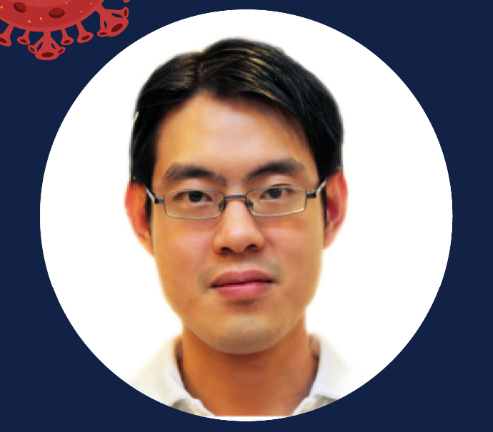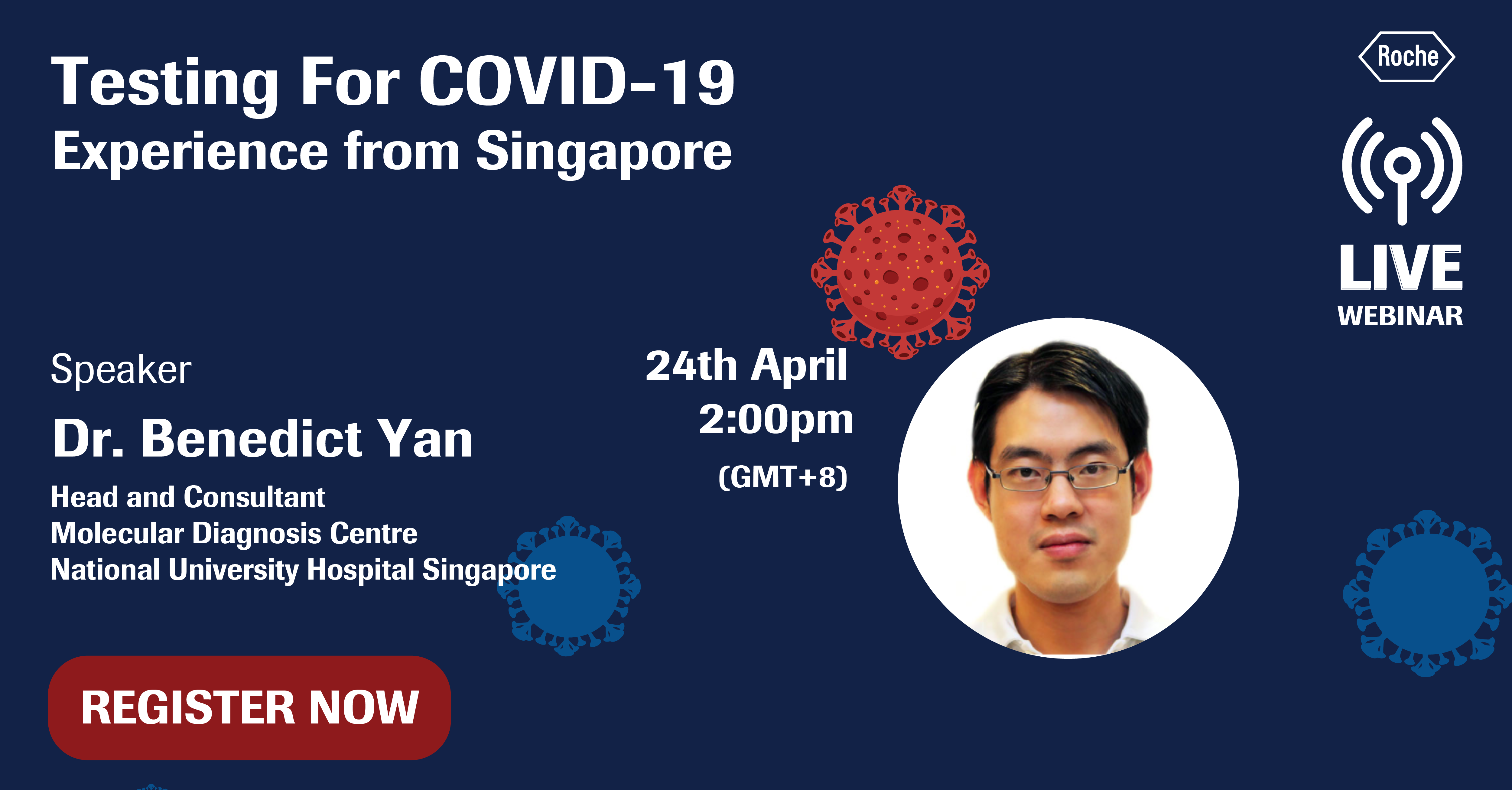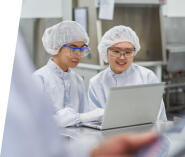As the Head and Consultant at the Molecular Diagnosis Centre (MDC) at National University Hospital (NUH), a major tertiary medical institution in Singapore’s public health system, Dr Benedict Yan plays a critical role in his country’s response to the COVID-19 pandemic. In a webinar on 24 Apr 2020, he shared key updates on his experience with an audience of lab professionals from across the Asia Pacific region.
Ever since the first confirmed case of COVID-19 appeared in Singapore in late January, local healthcare leaders made proactive efforts to improve their testing capacity. NUH was already performing lab-developed tests in February, but switched to high-throughput assays in March in order to meet surging demand for COVID-19 tests. As of late April, MDC was performing thousands of PCR tests for the disease every week.
Surging demand put major pressures on the MDC team, which had to keep up with fast-changing guidelines and technologies as it made preparations to move from normal operations to 24-hour service. “The biggest challenge was to service the tremendous demand sustainably without team members experiencing fatigue,” said Dr Yan. Increased biosafety requirements, which Dr Yan discussed in his presentation, undoubtedly added to the pressures.
Another challenge involved figuring out how to navigate supply chain disruptions. “There is definitely a shortage of various reagents, from swaps to transport media to extraction reagents,” noted Dr Yan. His presentation included details on how Singapore worked around these shortages in order to ensure widespread access to effective testing.
Please note that the webinar recording below was edited to focus on three key segments in Dr Yan’s presentation: (1) the evolution of Singapore’s testing criteria and policies between Jan and April 2020; (2) biosafety protocols in laboratory operations for COVID-19 infection analysis; and (3) related clinical and operational considerations.








